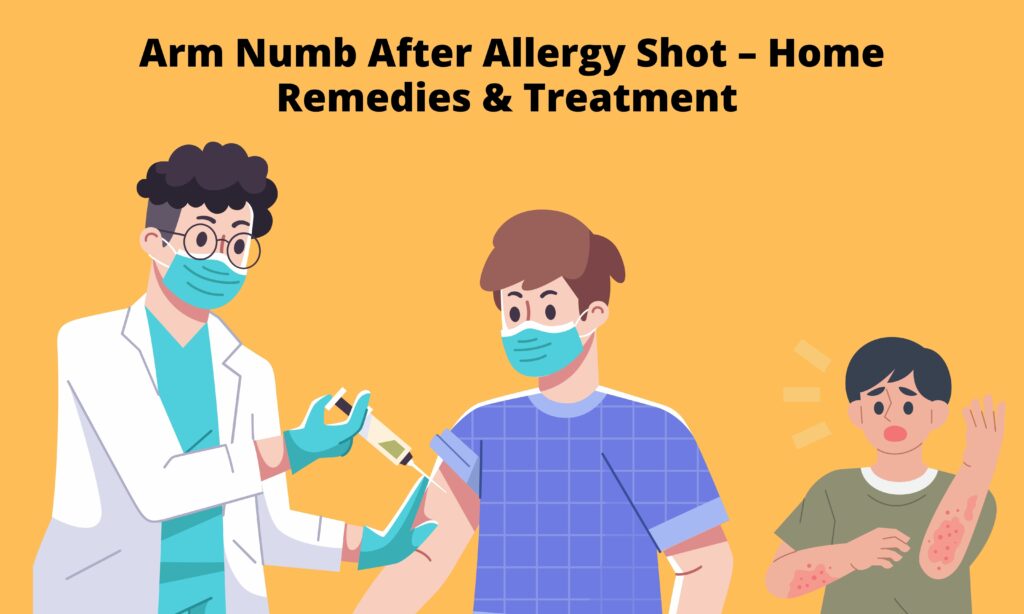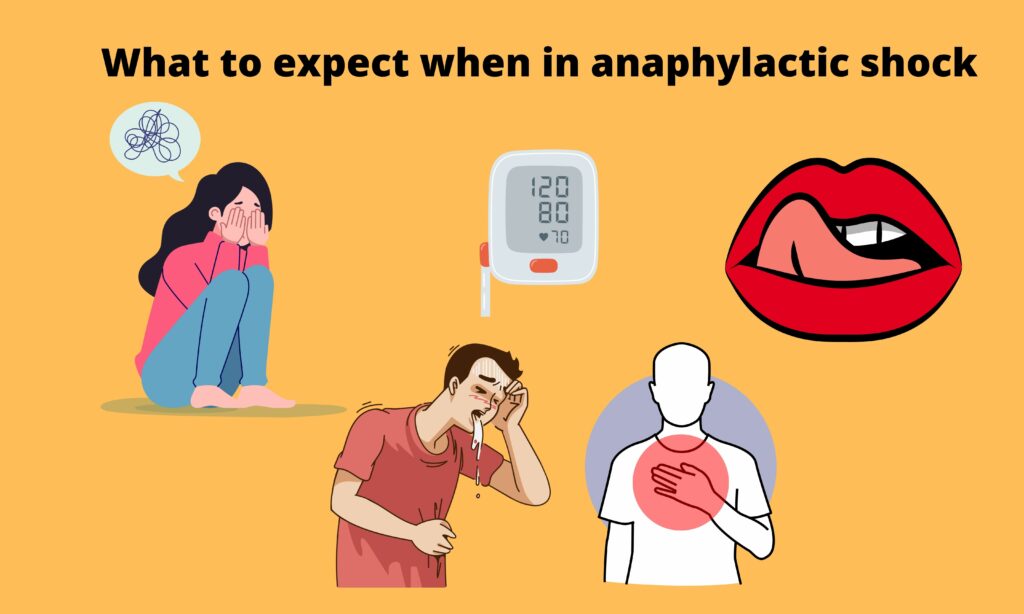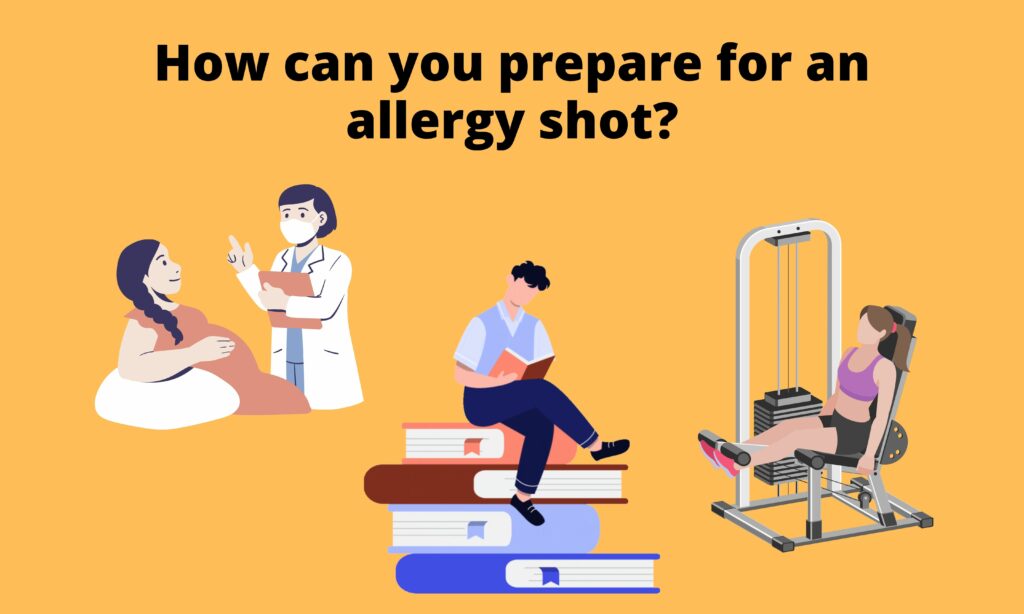
If you have recently received an allergy shot and are experiencing arm numbness, you may be wondering what could be causing it and what you can do to alleviate the discomfort. Here are some home remedies and treatments that may help.
Causes of Arm Numbness After Allergy Shot Arm numbness after an allergy shot can be caused by a few different factors, including:
- Injection technique: If the needle was inserted too deeply or at the wrong angle, it may have caused nerve damage, resulting in arm numbness.
- Allergic reaction: While allergy shots are designed to help alleviate allergic reactions, in rare cases, they can actually cause an allergic reaction themselves, which can lead to arm numbness and other symptoms.
- Anxiety: Anxiety can cause a range of physical symptoms, including numbness and tingling in the arms and hands.
Home Remedies for Arm Numbness If you are experiencing arm numbness after an allergy shot, there are some home remedies that you can try to help alleviate the discomfort. These include:
- Apply heat: Applying heat to the affected area can help to increase blood flow and reduce numbness. You can use a warm compress or take a warm bath or shower.
- Massage: Massaging the affected area can help to stimulate blood flow and alleviate numbness.
- Stretching: Gentle stretching can help to alleviate numbness and restore mobility to the affected area.
Medical Treatment for Arm Numbness If home remedies do not alleviate the numbness, it may be necessary to seek medical treatment. Some medical treatments that may be recommended include:
- Medications: Over-the-counter pain relievers such as ibuprofen or acetaminophen may help to alleviate discomfort.
- Physical therapy: A physical therapist can work with you to develop a plan of exercises and stretches to help alleviate arm numbness.
- Nerve blocks: In some cases, a nerve block may be recommended to help alleviate arm numbness.
Conclusion Arm numbness after an allergy shot can be uncomfortable and concerning, but there are home remedies and medical treatments that can help alleviate the discomfort. If you are experiencing arm numbness after an allergy shot, be sure to talk to your doctor to determine the underlying cause and appropriate treatment options.
Is arm numbness a symptom of an allergy shot?
Allergy shots are a common treatment for allergies, but they can sometimes come with unwanted side effects. One such side effect is arm numbness. In this article, we will explore whether arm numbness is a symptom of an allergy shot.
What is an Allergy Shot? Before we dive into the question of whether arm numbness is a symptom of an allergy shot, it’s important to understand what an allergy shot is. An allergy shot, also known as allergen immunotherapy, is a treatment that involves injecting small amounts of an allergen into the body to help build up immunity to that allergen over time.
Arm Numbness as a Side Effect of Allergy Shot Arm numbness is a potential side effect of an allergy shot. When the needle is inserted into the muscle, it can sometimes cause nerve damage or irritation, which can result in arm numbness. This is more likely to occur if the needle is inserted too deeply or at the wrong angle.
Other Possible Causes of Arm Numbness While arm numbness after an allergy shot is often due to nerve damage or irritation, there are other possible causes as well. These include:
- Allergic reaction: In rare cases, an allergy shot can cause an allergic reaction, which can lead to arm numbness and other symptoms.
- Anxiety: Anxiety can cause a range of physical symptoms, including numbness and tingling in the arms and hands.
When to Seek Medical Attention While arm numbness after an allergy shot is usually not a cause for concern and will typically resolve on its own within a few hours, there are some situations in which you should seek medical attention. These include:
- The numbness persists for more than a few hours.
- The numbness is accompanied by other symptoms, such as swelling, redness, or difficulty breathing.
- The numbness is severe or is affecting your ability to perform everyday tasks.
Conclusion In conclusion, arm numbness after an allergy shot is a potential side effect that can occur due to nerve damage or irritation. While it is usually not a cause for concern, it is important to be aware of the possible causes and when to seek medical attention if necessary. If you are experiencing arm numbness after an allergy shot, be sure to talk to your doctor to determine the underlying cause and appropriate treatment options.
What other symptoms can you expect?
If you have recently received an allergy shot and are experiencing arm numbness, you may be wondering if there are other symptoms you should expect. While arm numbness is a common side effect of allergy shots, there are other potential symptoms as well. In this article, we will explore what other symptoms you can expect after an allergy shot.
Common Side Effects of Allergy Shots In addition to arm numbness, there are a few other common side effects of allergy shots that you may experience. These include:
- Swelling and redness at the injection site
- Itching or hives
- Sneezing or a runny nose
- Coughing or wheezing
Less Common Side Effects of Allergy Shots While less common, there are also some other potential side effects of allergy shots that you may experience. These include:
- Dizziness or lightheadedness
- Upset stomach or diarrhea
- Fatigue or weakness
- Rapid heartbeat or palpitations
When to Seek Medical Attention While most side effects of allergy shots are mild and will go away on their own within a few hours, there are some situations in which you should seek medical attention. These include:
- Symptoms persist for more than a few hours
- Symptoms are severe or are affecting your ability to perform everyday tasks
- You experience difficulty breathing or swelling in the throat or mouth
Conclusion In conclusion, arm numbness is a common side effect of allergy shots, but there are other potential symptoms as well. While most side effects are mild and will go away on their own, it is important to be aware of the possible symptoms and when to seek medical attention if necessary. If you are experiencing any concerning symptoms after an allergy shot, be sure to talk to your doctor to determine the underlying cause and appropriate treatment options.
What to expect when in anaphylactic shock

Anaphylactic shock is a severe and potentially life-threatening allergic reaction that can occur after an exposure to an allergen, such as an allergy shot. While rare, it is important to be aware of the signs and symptoms of anaphylactic shock, including what to expect and when to seek emergency medical attention. In this article, we will explore what to expect when in anaphylactic shock.
Signs and Symptoms of Anaphylactic Shock Anaphylactic shock can cause a range of symptoms, including:
- Skin reactions, such as hives, itching, or flushing
- Swelling of the lips, tongue, or throat
- Difficulty breathing or shortness of breath
- Wheezing or coughing
- Rapid or weak pulse
- Nausea, vomiting, or diarrhea
- Dizziness or fainting
- Confusion or disorientation
What to Do if You Suspect Anaphylactic Shock If you suspect you or someone else is experiencing anaphylactic shock, it is important to take action immediately. Here are some steps you can take:
- Call 911 or seek emergency medical attention right away.
- If the person has an epinephrine auto-injector (such as an EpiPen), use it immediately.
- Have the person lie down and elevate their feet if possible.
- Loosen any tight clothing and cover them with a blanket to prevent hypothermia.
- If the person is having trouble breathing, help them sit upright and lean forward.
Preventing Anaphylactic Shock While anaphylactic shock can be scary, there are steps you can take to prevent it from occurring. These include:
- Avoiding known allergens
- Carrying an epinephrine auto-injector if you have a history of severe allergic reactions
- Ensuring that medical professionals are aware of your allergies and any history of allergic reactions
- Discussing with your doctor any potential risks and benefits of allergy shots or other allergy treatments
Conclusion In conclusion, anaphylactic shock is a severe allergic reaction that can occur after exposure to an allergen, such as an allergy shot. It is important to be aware of the signs and symptoms of anaphylactic shock, and to take immediate action if you suspect you or someone else is experiencing it. With proper prevention and treatment, anaphylactic shock can be managed effectively.
Can your arm numbness be hinting at an underlying condition?
If you are experiencing arm numbness after an allergy shot, you may be wondering if there could be an underlying condition causing this symptom. While arm numbness can be a common side effect of allergy shots, there are some potential underlying conditions that could also cause this symptom. In this article, we will explore some of these conditions and what you should do if you suspect you have an underlying condition causing your arm numbness.
Underlying Conditions That Could Cause Arm Numbness There are several underlying conditions that could cause arm numbness, including:
- Nerve damage or compression
- Carpal tunnel syndrome
- Peripheral neuropathy
- Stroke or transient ischemic attack (TIA)
When to Seek Medical Attention If you are experiencing arm numbness after an allergy shot, it is important to pay attention to any other symptoms you may be experiencing, as well as how long the symptom lasts. If you are also experiencing other symptoms or if the arm numbness persists for more than a few hours, it may be a sign of an underlying condition. Here are some situations in which you should seek medical attention:
- You are experiencing weakness or loss of coordination in addition to arm numbness
- The arm numbness is spreading to other parts of your body
- You have a history of stroke or other neurological conditions
- The arm numbness is accompanied by severe pain or swelling
Conclusion In conclusion, while arm numbness can be a common side effect of allergy shots, there are some potential underlying conditions that could also cause this symptom. If you suspect you have an underlying condition causing your arm numbness, it is important to seek medical attention to determine the underlying cause and appropriate treatment options. With proper diagnosis and treatment, underlying conditions that cause arm numbness can be effectively managed.
How can you prepare for an allergy shot?

If you have been advised to take an allergy shot, it is important to prepare yourself adequately to avoid any unpleasant experiences during and after the shot. Proper preparation can also help minimize the likelihood of experiencing arm numbness after the allergy shot. In this article, we will explore some useful tips for preparing for an allergy shot.
- Consult with Your Doctor Before you start preparing for your allergy shot, it is important to consult with your doctor. Your doctor will evaluate your allergy symptoms and recommend an appropriate allergy shot schedule. They will also advise you on how to prepare for the shot and what to expect during and after the shot.
- Avoid Certain Medications Some medications can interfere with the effectiveness of allergy shots or increase the likelihood of experiencing side effects. It is essential to avoid certain medications before and after the allergy shot. Examples of these medications include antihistamines, decongestants, and beta-blockers.
- Stay Hydrated Drinking plenty of fluids before and after the allergy shot can help minimize the likelihood of experiencing arm numbness. Staying hydrated can also help flush out any toxins from your body that may be released during the allergy shot.
- Prepare for Side Effects While allergy shots are generally safe, they can cause some side effects such as arm numbness, swelling, and redness. It is important to be prepared for these side effects and know how to manage them. Your doctor will advise you on how to manage any side effects that you may experience.
- Be Prepared for Emergencies Although rare, an allergic reaction to the allergy shot can occur. It is essential to be prepared for emergencies by carrying an epinephrine auto-injector with you at all times. You should also inform your family, friends, and colleagues about your allergy and how to use the auto-injector in case of an emergency.
Conclusion In conclusion, preparing for an allergy shot involves consulting with your doctor, avoiding certain medications, staying hydrated, preparing for side effects, and being prepared for emergencies. By following these tips, you can minimize the likelihood of experiencing arm numbness and other unpleasant side effects during and after the allergy shot. Remember to consult with your doctor if you have any concerns or questions about the allergy shot.
FAQs
If you are considering an allergy shot or have already received one, you may have some questions about the procedure and potential side effects. In this article, we will answer some frequently asked questions about allergy shots and arm numbness.
- Why does arm numbness occur after an allergy shot? Arm numbness is a common side effect of allergy shots. This occurs when the injection causes a reaction in the body, leading to inflammation and swelling in the surrounding tissue. This inflammation can compress the nerves in the arm, leading to numbness and tingling sensations.
- How long does arm numbness last after an allergy shot? Arm numbness after an allergy shot typically lasts for a few hours to a day. However, in some cases, the numbness may persist for longer. If you experience persistent arm numbness, it is important to contact your doctor for evaluation.
- Can I do anything to prevent arm numbness after an allergy shot? While arm numbness is a common side effect of allergy shots, there are a few things you can do to minimize the likelihood of experiencing this symptom. These include staying hydrated, avoiding any strenuous activities after the shot, and keeping the injection site clean and dry.
- What are some other common side effects of allergy shots? In addition to arm numbness, allergy shots can cause other side effects such as redness, swelling, and itching at the injection site. You may also experience symptoms such as sneezing, runny nose, and itchy eyes.
- When should I seek medical attention for arm numbness after an allergy shot? If the arm numbness persists for more than a day or is accompanied by other symptoms such as weakness, loss of coordination, or severe pain, it is important to seek medical attention. Additionally, if you have a history of stroke or other neurological conditions, it is important to inform your doctor about these conditions before receiving an allergy shot.
Conclusion In conclusion, arm numbness is a common side effect of allergy shots, but it is usually a temporary symptom that resolves within a few hours to a day. If you experience persistent arm numbness or other symptoms after an allergy shot, it is important to seek medical attention. By staying informed and following your doctor’s instructions, you can minimize the likelihood of experiencing arm numbness and other side effects during and after an allergy shot.
Conclusion
In conclusion, receiving an allergy shot can be an effective way to manage allergies, but it can also come with side effects such as arm numbness. It is important to understand the potential risks and benefits of allergy shots and to prepare yourself for the procedure. Here are some key takeaways from the article:
- Arm numbness is a common side effect of allergy shots, but it is usually temporary and resolves within a few hours to a day.
- Other common side effects of allergy shots include redness, swelling, itching, and respiratory symptoms.
- In rare cases, allergy shots can lead to anaphylaxis, a severe and potentially life-threatening reaction. It is important to be aware of the signs and symptoms of anaphylaxis and to seek immediate medical attention if you experience these symptoms.
- Before receiving an allergy shot, it is important to inform your doctor about any medical conditions you have, including a history of stroke or neurological disorders.
- To minimize the risk of arm numbness and other side effects, it is important to stay hydrated, avoid strenuous activities after the shot, and keep the injection site clean and dry.
- If you experience persistent arm numbness or other symptoms after an allergy shot, it is important to seek medical attention.
Overall, allergy shots can be a safe and effective way to manage allergies, but it is important to be informed and prepared for the procedure. By working with your doctor and following their instructions, you can minimize the risk of arm numbness and other side effects and achieve relief from your allergy symptoms.